Israeli Prime Minister Benjamin Netanyahu has formally nominated United States President Donald Trump for the Nobel Peace Prize.
He says the president is “forging peace as we speak, in one country, in one region after the other”.
Trump, who has craved the award for years, sees himself as a global peacemaker in a raft of conflicts from Israel and Iran, to Rwanda and the Democratic Republic of Congo.
With the conflict in Gaza still raging, we ask five experts, could Trump be rewarded with the world’s most prestigious peace prize?
Emma Shortis
Adjunct Senior Fellow, School of Global, Urban and Social Studies, RMIT University
“Nominating Trump for the Nobel Peace Prize is like entering a hyena in a dog show.
Of course, Trump does not deserve it. That we’re being forced to take this question seriously is yet another indication – as if we needed one – of his extraordinary ability to set and reset the terms of our politics.
There is no peace in Gaza. Even if Trump announced another ceasefire tomorrow, it would not last. And it would not build genuine peace and security.
Trump has neither the interest nor the attention span required to build long-term peace. His administration is not willing to bear any of the costs or investments that come with genuine, lasting diplomacy. And he is not anti-war.
There is no peace in Iran. Trump’s bombing of Iran simply exacerbates his decision in 2018 to end nuclear negotiations with Tehran. It pushes the world closer to, not further from, nuclear catastrophe.
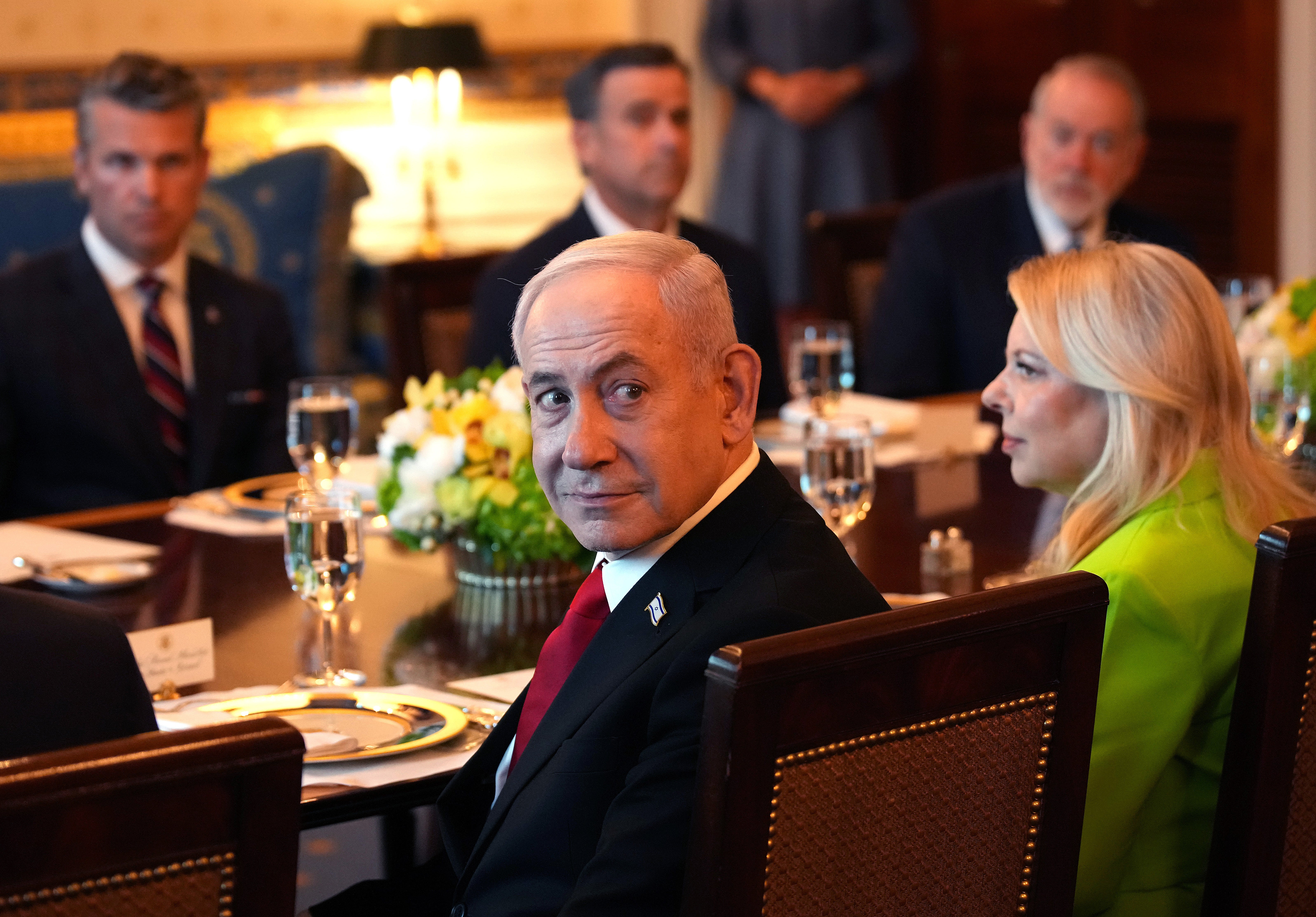
Under the Trump administration, there will be no peace in the Middle East. Both the US and Israeli governments’ approach to “security” puts the region on a perpetual war footing. This approach assumes it is possible to bomb your way to peace – a “peace” which both Trump and Netanyahu understand as total dominance and violent oppression.
The Trump administration is deliberately undermining the institutions and principles of international and domestic law.
He has deployed the military against American citizens. He is threatening the United States’ traditional allies with trade wars and annexation. His administration’s dismantling of USAID will result, according to one study, in the deaths of 14 million people, including 4.5 million children, by 2030.
Indulging Trump’s embarrassing desire for trophies might appease him for a short time. It would also strip the Nobel Peace Prize of any and all credibility, while endorsing Trump’s trashing of the international rule of law.
What kind of peace is that?”
Emma Shortis is Director of International and Security Affairs at The Australia Institute, an independent think tank.
Ali Mamouri
Research Fellow, Middle East Studies, Deakin University
“The nomination of Donald Trump for the Nobel Peace Prize by a man who is facing charges of war crimes is an unprecedented and deeply dark irony that cannot be overlooked.
Trump’s role in brokering the Abraham Accords was hailed as a diplomatic breakthrough. It led to the normalisation of relations between Israel and several Arab countries, including the United Arab Emirates, Bahrain and Morocco.
But this achievement came at a significant cost. The accords deliberately sidelined the Palestinian issue, long recognised as the core of regional instability, and disregarded decades of international consensus on a two-state solution.
Trump’s administration openly supported Israeli policies widely considered to violate international law, including the expansion of illegal settlements and the proposed annexation of Palestinian territory.
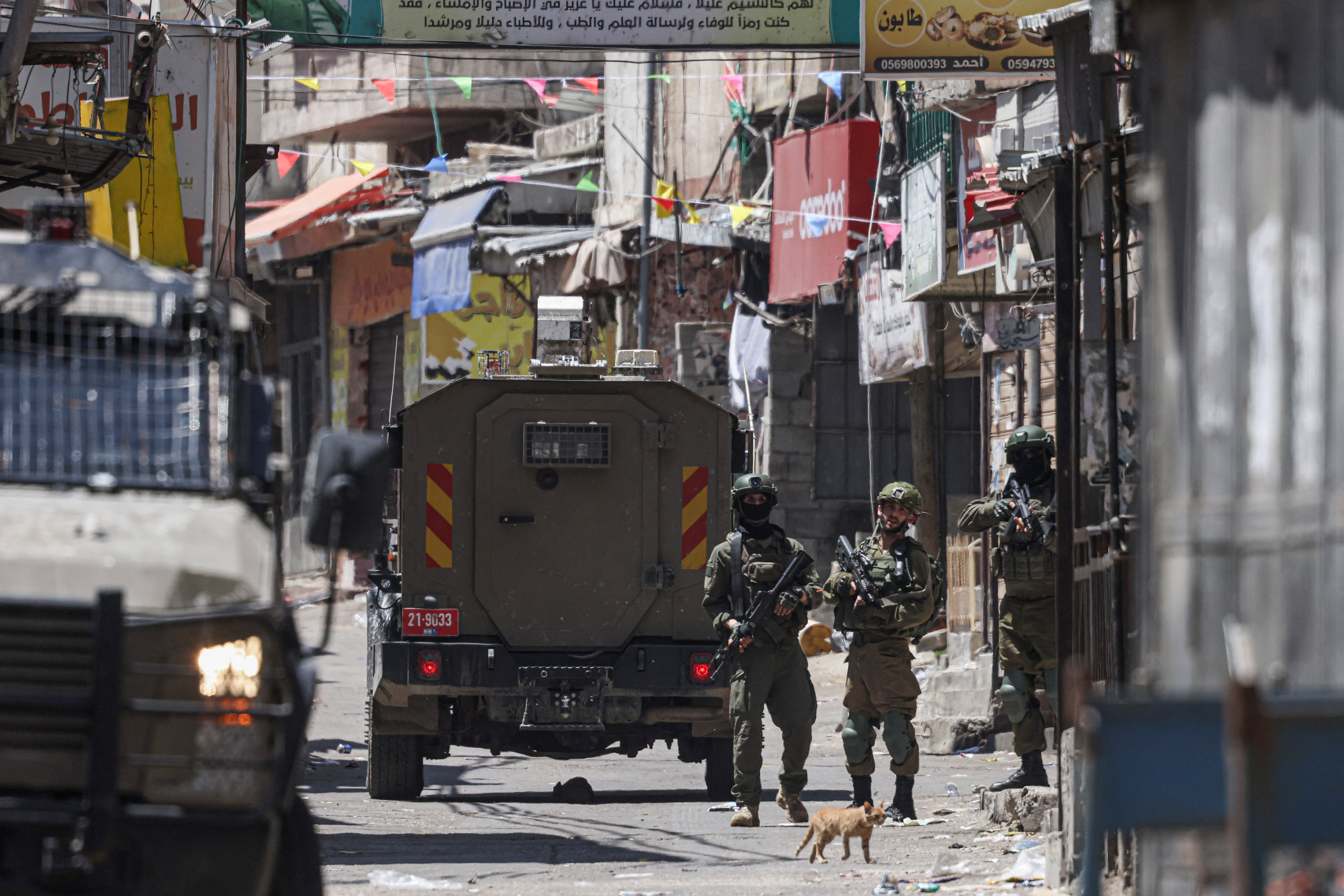
His silence in the face of a growing humanitarian catastrophe in Gaza was equally telling. Perhaps most disturbing was the tacit or explicit endorsement of proposals to forcibly relocate Palestinians to neighbouring Arab countries, a position that evokes ethnic cleansing and fundamentally undermines principles of justice, dignity and international law.
In addition, there is Trump’s unconditional support for Israel’s military campaigns across the region, including his authorisation of attacks on Iranian civilian, military and nuclear infrastructure. The strikes lacked any clear legal basis, contributed further to regional instability and, according to Tehran, killed more than a thousand civilians.
His broader disregard for international norms shattered decades of post-Second World War diplomatic order and increased the risk of sustained and expanded conflict.
Against this backdrop, any serious consideration of Trump for the Nobel Peace Prize seems fundamentally at odds with its stated mission: to honour efforts that reduce conflict, uphold human rights and promote lasting peace.
Whatever short-term diplomatic gains emerged from Trump’s tenure are eclipsed by the legal, ethical and humanitarian consequences of his actions.”
Ali Mamouri does not work for, consult, own shares in or receive funding from any company or organisation that would benefit from this article, and has disclosed no relevant affiliations beyond their academic appointment.
Ian Parmeter
Research Scholar, Middle East Studies, Australian National University
“Netanyahu’s nomination of Donald Trump for one of the world’s most coveted awards was clearly aimed at flattering the president.
Trump is clearly angling for the laurel, which his first-term predecessor, Barack Obama, won in his first year in office.
Obama was awarded the prize in 2009 for promotion of nuclear non-proliferation and fostering a “new climate” in international relations, particularly in reaching out to the Muslim world.
Given neither of these ambitions have since borne fruit, what claims might Trump reasonably make at this stage of his second term?
Trump has claimed credit for resolving two conflicts this year: the brief India–Pakistan clash that erupted after Pakistani militants killed 25 Indian tourists in Kashmir in May; and the long-running dispute between Rwanda and the Democratic Republic of the Congo.
Indian Prime Minister Narendra Modi disputes that Trump brokered peace. He says the issue was resolved by negotiations between the two countries’ militaries.
With regards to the Rwanda–DRC conflict, the countries signed a peace agreement in the Oval Office in June. But critics argue Qatar played a significant role which the Trump administration has airbrushed out.
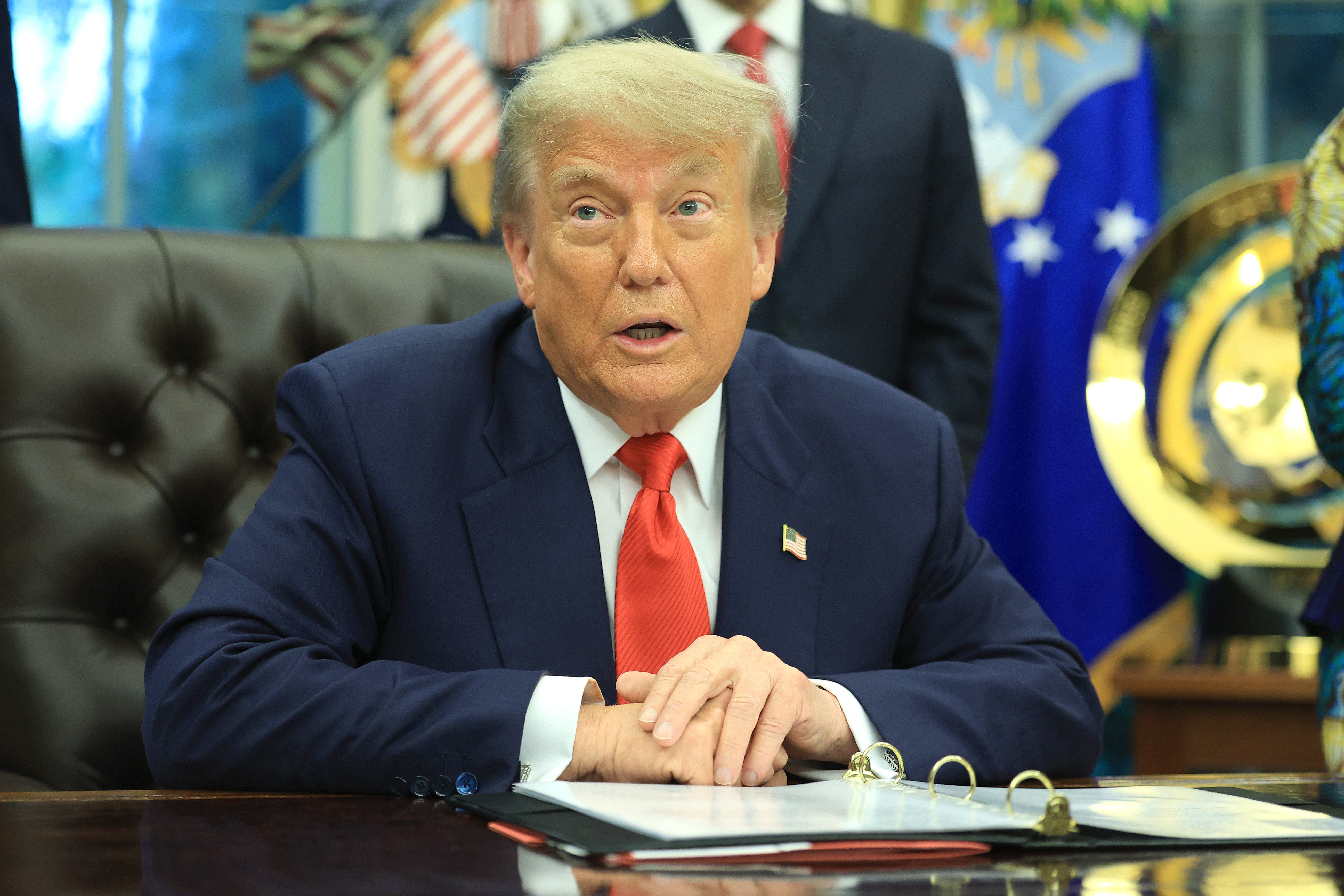
Trump can legitimately argue that his pressure on Israel and Iran forced a ceasefire in their 12-day war in June.
But his big test is the Gaza war. For Trump to add this to his Nobel claim, he will need more than a ceasefire.
The Biden administration brokered two ceasefires that enabled the release of significant numbers of hostages, but did not end the conflict.
Trump would have to use his undoubted influence with Netanyahu to achieve more than a temporary pause. He would have to end the war definitively and effect the release of all Israeli hostages.
Beyond that, if Trump could persuade Netanyahu to take serious steps towards negotiating a two-state solution, that would be a genuine Nobel-worthy achievement.
Trump isn’t there yet.”
Ian Parmeter does not work for, consult, own shares in or receive funding from any company or organisation that would benefit from this article, and has disclosed no relevant affiliations beyond their academic appointment.
Jasmine-Kim Westendorf
Associate Professor of Peace and Conflict and Co-Director of the Initiative for Peacebuilding, The University of Melbourne
“The Nobel Peace Prize recognises outstanding contributions to peace globally.
Although controversial or politicised awards are not new, awardees are generally individuals or groups who’ve made significant contributions to a range of peace initiatives.
They include reducing armed conflict, enhancing international cooperation, and human rights efforts that contribute to peace.
Inspiring examples include anti-nuclear proliferation organisations and phenomenal women peacemakers. And Nadia Murad and Denis Mukwege, who won in 2011 for their work trying to end the use of sexual violence as a weapon of war.
Trump has declared his “proudest legacy will be that of a peacemaker and unifier”. But he is neither.
The president has fuelled escalating insecurity, violent conflict and human rights violations globally, and actively undermined international cooperation for peace. This includes the decision to sanction judges of the International Criminal Court.
There has been a concerning trend towards using the Nobel Peace Prize to encourage certain political directions, rather than reward achievements.
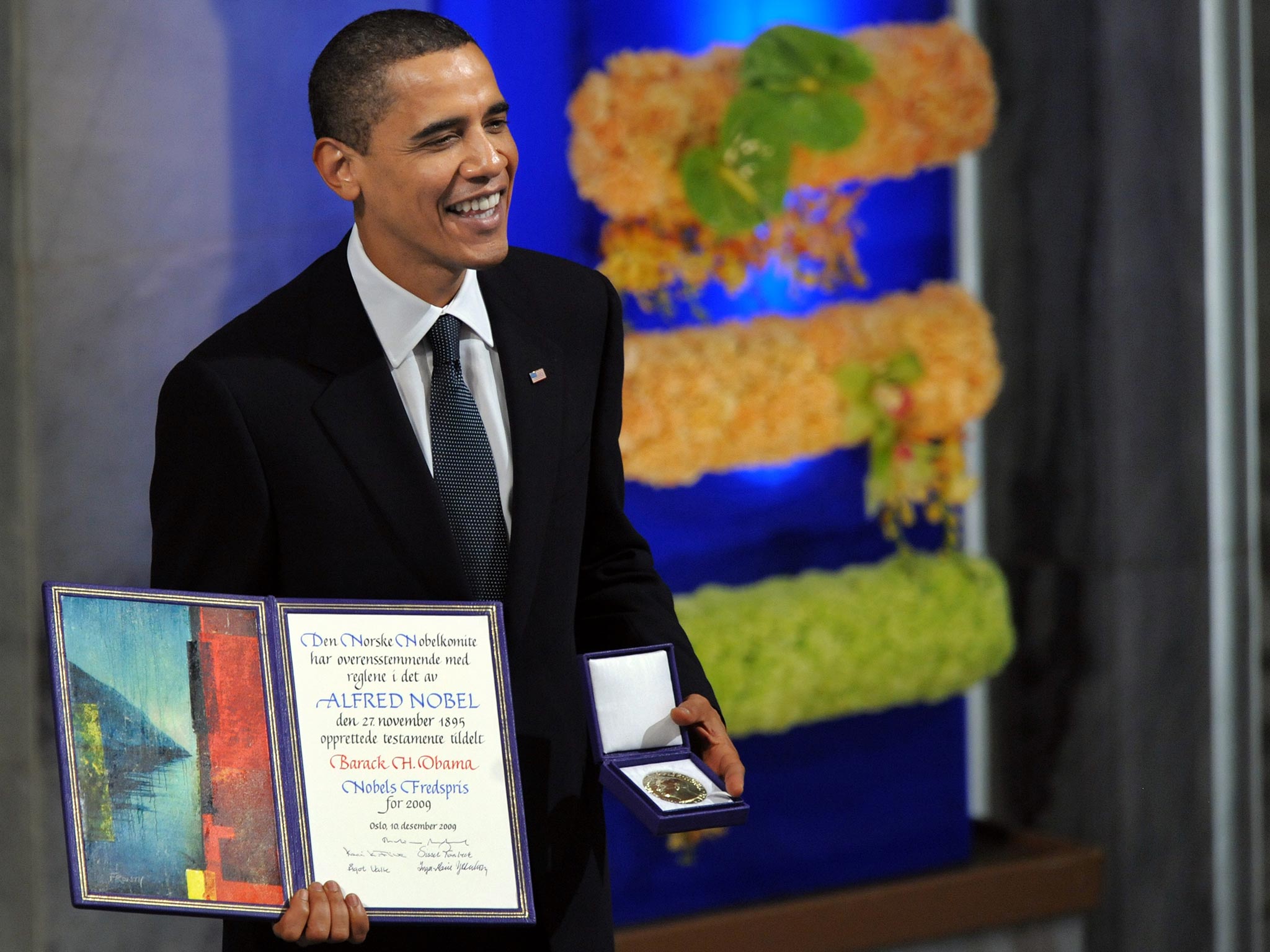
Barack Obama’s 2008 Prize helped motivate his moves toward diplomacy and cooperation after the presidency of George W. Bush.
Ethiopian Prime Minister Abiy Ahmed’s 2018 award was for efforts to resolve the 20-year war with Eritrea. The peace prize encouraged Ahmed to fulfil his promise of democratic elections in 2020. Embarrassingly, within a year, Ahmed launched a civil war that killed over 600,000 people and displaced 3 million more.
This week’s nomination follows efforts by global leaders to flatter Trump in order – they hope – to secure his goodwill.
These motivations explain why Netanyahu has put forward Trump’s name to the Nobel Committee. It comes at the very moment that securing Trump’s ongoing support during ceasefire negotiations is critical for Netanyahu’s political survival.
Trump has also been nominated by the government of Pakistan and by several Republican figures. Flattery is the currency Trump trades in. These nominations pander to a president who has bemoaned: “They will never give me a Nobel Peace Prize […] It’s too bad. I deserve it, but they will never give it to me.”
Prizes to genuine peacemakers amplify their work and impact.
1984 winner Desmond Tutu said: “One day no one was listening. The next, I was an oracle.” A Nobel can be a powerful force for peace.
Trump is no peacemaker; he doesn’t deserve one.”
Jasmine-Kim Westendorf has received funding from the Australian Research Council.
Shahram Akbarzadeh
Director, Middle East Studies Forum (MESF), Deakin University
“Benjamin Netanyahu would have us believe Donald Trump is a peacemaker.
Nothing could be further from the truth. His record is stained with blood and misery. The fact that Trump believes himself to be worthy of the Nobel Peace Prize only attests to his illusions of grandeur in the face of overwhelming evidence to the contrary.
The war in Gaza has gone into its 20th month because Trump did not use the levers at his control to bring the senseless war to a close.
Some estimates put the true Gaza death toll at 100,000 people, and counting. They have been killed by American-made bombs Israel is dropping across the densely populated strip; from starvation because Israel has enforced a blockade of the Gaza Strip and prevented UN food delivery with the blessings of America; and from gunshots at food distribution centres, set up with US private security.
All under Trump’s watch.
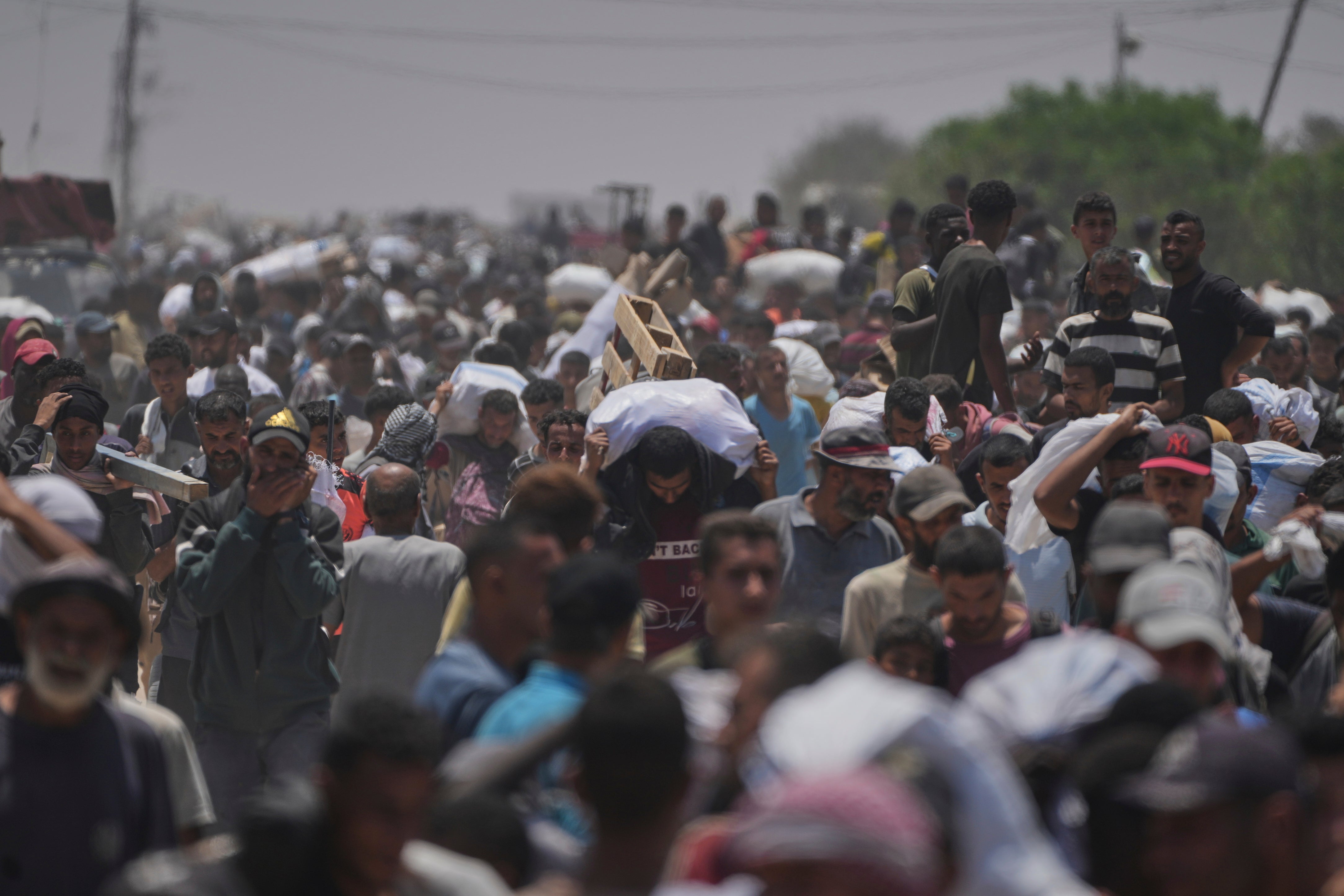
Trump could do something about this. Israel is the largest recipient of US aid, most of it military support.
This has multiplied since Israel commenced its attack on Gaza in response to Hamas terrorism on October 7 2023. Trump has approved the transfer of US military hardware to Israel, knowing full well it was being used against a trapped and helpless population.
This is not the act of a peacemaker.
Now the Israeli government is planning to “facilitate” population transfer of Gazans to other countries – a euphemism for ethnic cleansing.
This is the textbook definition of genocide: deliberate and systematic killing or persecution of people. Trump legitimised this travesty of decency and international law by promising a Gaza Riviera.
The outlandish extent of Trump’s ideas would be laughable if their consequences were not so devastating.
When Israel attacked Iran in the middle of nuclear talks, Trump had a momentary pause, before jumping to Netanyahu’s aid and bombing Iran. He then claimed his action paved the way for peace.
Trump’s idea of peace is the peace of the graveyard.”
Shahram Akbarzadeh receives funding from Australia Research Council.
Emma Short, Adjunct Senior Fellow, School of Global, Urban and Social Studies, RMIT University. Ali Mamouri, Research Fellow, Middle East Studies, Deakin University. Ian Parmeter, Research Scholar, Middle East Studies, Australian National University. Jasmine-Kim Westendorf, Associate Professor and Co-Director, Initiative for Peacebuilding, The University of Melbourne. Shahram Akbarzadeh, Director, Middle East Studies Forum (MESF), Deakin University.
This article is republished from The Conversation under a Creative Commons license. Read the original article.
Ukraine war latest: Trump’s anger at Moscow’s ‘lack of flexibility’ to end war
Nutella maker Ferrero taking cereal company Kellogg private in a deal valued at about $3.1 billion
Here are some things you can do to be better prepared for major flooding
Trump’s nominee for Singapore envoy criticised in Senate for lack of knowledge
Zohran Mamdani unable to film new ad campaign due to endless selfie requests
Trump puts another nail in Musk friendship with his NASA appointee







